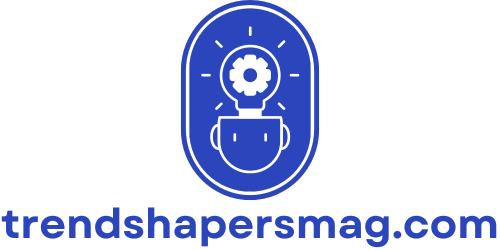Table of Contents
ToggleIn the chaotic world of small business, keeping a close eye on finances can feel like trying to juggle flaming torches while riding a unicycle. Enter small business budgeting software, the trusty sidekick every entrepreneur needs. It’s like having a financial GPS that not only guides you through the twists and turns of cash flow but also shouts, “Watch out for that pothole!” when expenses threaten to derail your plans.
These tools simplify the daunting task of budgeting, making it easier to track income, manage expenses, and forecast future profits. With the right software, small business owners can focus less on crunching numbers and more on what they do best—growing their business. So, let’s dive into the world of budgeting software and discover how it can transform financial chaos into a symphony of profitability.
Overview of Small Business Budgeting Software
Small business budgeting software serves as a vital resource for entrepreneurs managing their financial health. Tracking income accurately empowers owners to understand cash flow and assess financial standing. Developers designed many solutions to streamline expense management, ensuring users can categorize and monitor spending effectively.
Comprehensive features often include reporting tools, expense tracking, and forecasting capabilities. Customizable dashboards enable business owners to visualize data in ways that suit their needs. Advanced tools allow for scenario planning, providing insights into various financial futures based on current performance.
Many software options offer integration with other financial systems, such as accounting software and payment processors. This integration minimizes manual data entry, reducing errors and saving time. Users see improved accuracy and efficiency in their budgeting process, which can boost overall productivity.
Security features are crucial, given the sensitive nature of financial data. Many platforms implement robust encryption and two-factor authentication to safeguard information. Some software even provides role-based access, enhancing security while allowing teams to collaborate effectively.
Affordability remains a key consideration when choosing budgeting software. Pricing structures often include subscription models, making tools accessible to small businesses with varying budgets. Free trials or tiered plans provide flexibility, allowing businesses to explore different features before making a commitment.
Investing in small business budgeting software transforms financial management into a more organized and strategic undertaking. By utilizing these tools effectively, entrepreneurs can foster growth and stability, ensuring their business remains competitive in the marketplace.
Key Features to Look For

Selecting the right small business budgeting software hinges on understanding its key features. Consider the following aspects when evaluating options.
User-Friendly Interface
A user-friendly interface enhances navigation and minimizes the learning curve. Intuitive layouts allow users to manage their budgets with ease. Clear labeling and organized sections streamline data entry and retrieval. A great dashboard provides quick access to critical financial metrics. Accessibility across devices ensures users can monitor budgets on the go.
Integration Capabilities
Integration capabilities significantly enhance software functionality. Compatibility with existing tools eliminates the need for duplicate data entry. Look for software that syncs with accounting systems, payment processors, and CRM platforms. This connectivity helps maintain consistent data across all applications. Seamless integration fosters a more cohesive financial ecosystem.
Reporting and Analytics
Reporting and analytics features provide invaluable insights into financial performance. Customizable reports allow users to analyze specific metrics per their business needs. Dashboards that visualize key performance indicators enhance comprehension. Real-time analytics support timely decision-making by showcasing trends and patterns. Effective reporting tools empower businesses to identify growth opportunities and areas for improvement.
Popular Small Business Budgeting Software Options
Numerous small business budgeting software options simplify financial management while enhancing strategic oversight. Here are two noteworthy selections:
Option 1: QuickBooks Online
QuickBooks Online remains a leading choice for small businesses. It offers powerful invoicing capabilities, seamless expense tracking, and comprehensive financial reports. Users appreciate the intuitive dashboard that displays real-time cash flow insights. Integration with various financial tools streamlines operational processes. QuickBooks also provides mobile access, allowing entrepreneurs to manage finances from anywhere. Affordable pricing plans cater to different business sizes, making it accessible for startups and established companies alike.
Option 2: FreshBooks
FreshBooks presents itself as an excellent alternative for small businesses seeking user-friendly budgeting tools. Specialized in invoicing and expense management, FreshBooks enables easy tracking of billable hours and project expenses. A simple, clean interface enhances navigation. Collaboration features allow teams to work efficiently, providing stakeholders access to vital financial data. FreshBooks supports integration with multiple third-party applications, ensuring smooth workflows. With its tiered pricing strategy, FreshBooks accommodates diverse financial needs, appealing to various business budgets.
Benefits of Using Small Business Budgeting Software
Small business budgeting software offers several advantages that streamline financial management. Accurate tracking of income enhances cash flow understanding, enabling owners to assess financial standing effectively. Expense tracking features minimize the risk of overspending and help identify saving opportunities.
Forecasting capabilities within the software assist in predicting future revenue and expenses. Business owners can use this information to make informed decisions about investments and resource allocation. Customizable dashboards provide comprehensive visual displays of financial data, making it easier to analyze trends and patterns.
Integration with existing financial tools simplifies data management. Many software options allow automatic synchronization with accounting platforms, reducing manual data entry and improving accuracy. Enhanced efficiency saves time, allowing entrepreneurs to focus on core business operations rather than tedious calculations.
Robust security measures protect sensitive financial information. Features like encryption and two-factor authentication ensure data safety, giving business owners peace of mind. Affordable pricing structures make these tools accessible to various business sizes, enabling startups and established companies to benefit equally.
Valuable reporting and analytics features offer insights into financial performance. Detailed reports highlight areas of success and opportunities for improvement. Business leaders can use these insights to craft strategies that drive growth and stability in the competitive marketplace.
Ultimately, leveraging budgeting software transforms financial management into a smooth, organized process. These tools empower entrepreneurs to navigate their financial landscapes with confidence, fostering a culture of strategic planning and informed decision-making.
Small business budgeting software is more than just a tool; it’s a game changer for entrepreneurs. By streamlining financial management, it empowers business owners to make informed decisions and focus on growth. With features like expense tracking and forecasting, these solutions enhance financial visibility and stability.
The right budgeting software can simplify complex financial tasks while ensuring data security and affordability. As small businesses continue to navigate a competitive landscape, investing in effective budgeting software is a strategic move that can lead to long-term success. Embracing this technology not only fosters better financial health but also paves the way for sustainable growth and innovation.







